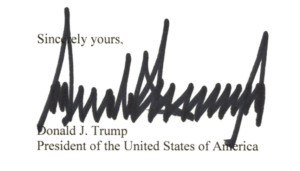- Facebook and Twitter shutter pro-Trump network reaching 55 million accounts The accounts used AI-generated faces to ‘masquerade’ as Americans. The assault on democracy continues apace.
- Questions worth asking And worth trying to answer. Like why is life expectancy in Hong Kong the highest in the world? From Tyler Cowen.
- Total Surveillance Is Not What America Signed Up For Tell that to the tech companies. Terrific New York Times reporting.
- On the Measure of Intelligence Interesting long paper by François Chollet, a prominent machine-learning scientist at Google, on future models of artificial intelligence, how we would define it, and what we might do next.
70 is NOT “the new 50”
What’s weird about a relentlessly ageing society is its equally relentless determination to avoid talking about the realities of ageing and death. Suddenly it’s ‘ageist’ to refer to somebody as “old”. They’re just “older” — which is idiotic, when you think about it: everybody is, by definition, older than somebody else. And as for the slogan that “70 is the new 50″… (Which, as an interesting NYT piece puts it, is “a rosy falsehood contradicted by any serious study of the age curve for major diseases”. For people older than 85, for example, the risk of developing Alzheimer’s is 14 times higher than for those ages 65 to 69.)
And, as the piece points out, the current decline in birth rates in countries like the US means that
there will be many fewer young and middle-aged people to care for the frailest of the old, whose death rate has not increased in recent years. The population of the prime caregiving age group, from 45 to 64, is expected to increase by only 1 percent before 2030, while the population over 80 will increase by 79 percent.
Our inability to think about — let alone plan for — the future is obviously a cultural thing (and is different in non-Western societies). But I wonder how much of it is also a by-product of the way Western democracies are now driven by five-year electoral cycles. No politician nowadays seems capable of long-term thinking.
And then there is the strange fact that five of the candidates for President — Joe Biden, Michael Bloomberg, Bernie Sanders, Donald Trump and Elizabeth Warren — are septuagenarians.
[Full disclosure: this blogger is over 70 and can testify that it is not the new 50! Nor is he running for president of anything.]
Trump writes, and this is what he wrote
This is his signature on the screwball letter he wrote to Speaker Pelosi.
Linkblog
- How to recognise AI snake oil Slides of a terrific lecture by Arvind Narayanan of Princeton.
- Killer doubts Good review by Diane Coyle of * Merchants of Doubt: How a Handful of Scientists Obscured the Truth on Issues from Tobacco Smoke to Global Warming by Erik Conway and Naoini Oreskes.
- Very thoughtful commentary by Wendy Grossman on my observer column about how we hold AI systems to higher standards than humans doing the same thing.
- Elon Musk’s weird ‘cybertruck’ Jean-Louis Gasseé on whether it’s a real prospect, or just PR clickbait.
Thanks to Philip Cunningham for spotting a duff link.
The 26 words that created the Internet we have today
This morning’s Observer column:
Stratton Oakmont sued Prodigy and the unidentified poster for defamation – and won. Prodigy argued that it couldn’t be held responsible for what anonymous users posted on its platform. The judge disagreed, arguing that the company was liable as the publisher of the content created by its users because it exercised editorial control over the messages on its bulletin boards in several ways and was thereby potentially liable for any and all defamatory material posted on its websites.
The case alarmed an Oregon congressman (now a US senator), Ronald Wyden, who accurately perceived it as a mortal threat to the growth of the internet. It would mean that every online hosting service would need to have lawyers crawling over its site, thereby slowing exploitation of the technology to a crawl. So with another congressman, Chris Cox, he inserted a short clause – Section 230 – into the Communications Decency Act, which was then incorporated in the sprawling 1996 Telecommunications Act. The section itself is short (about a thousand words) but the core of it is a single sentence: “No provider or user of an interactive computer service shall be treated as the publisher or speaker of any information provided by another information content provider.”
That sentence laid the basis for everything that has followed. It constitutes, as the title of a recent book puts it, The Twenty-Six Words that Created the Internet. What it does is create a “liability shield” for online platforms…
Linkblog
- Can the Internet survive climate change? Partly about whether the planet can survive Netflix (i.e the carbon footprint of streaming video).
- Sale of second-hand e-books infringes copyright, rules CJEU Just because you paid for an e-book doesn’t mean you own it. The EU’s highest court has ruled that the exhaustion of copyright does not apply to e-books.
- The Cathedral and the Bizarre A hyper-critical take on The Cathedral and the Bazaar, Eric Raymond’s famous essays on Open Source software.
- DeepMind and Google: the battle to control Artificial Intelligence Terrific article by Hal Hodson.
A blogger’s mascot
The decade in tech
Neatly summed up by Scott Galloway in the Pivot podcast.
Linkblog
- We Tested Ring’s Security. It’s Awful Ring lacks basic security features, making it easy for hackers to turn the company’s cameras against its customers. Why are we not surprised?
- Last House On The Left: Following Jeremy Corbyn’s Campaign Trail Remarkably insightful (long) article about Jeremy Corbyn — written four years ago.
- The scientific events that shaped the decade Nature’s summary of a decade breakthroughs in frontiers from gene editing to gravitational waves. The coming one must focus on climate change.
- The decade that tech lost its way The New York Times’s oral history of the 2010s
Linkblog
- Keynes was wrong: Generation Z will have it worse Long, thoughtful essay on Keynes’s famous 1933 essay on “The Economic Possibilities for our Grandchildren”.
- Raspberry Pi celebrates its 30 millionth sale The little computer that could. It’s the one great British success story of our times.
- The Very Respectful Wikipedia Battles Over “OK Boomer” Another illustration of the intrinsic wisdom of Wikipedia’s methodology for separating fact from fiction. And it was invented long before anyone had heard of fake news.
- How to Control a Conversation Without Saying Much at All When one speaker is monopolizing a discussion, use a tactic called ‘cognitive incision’.


